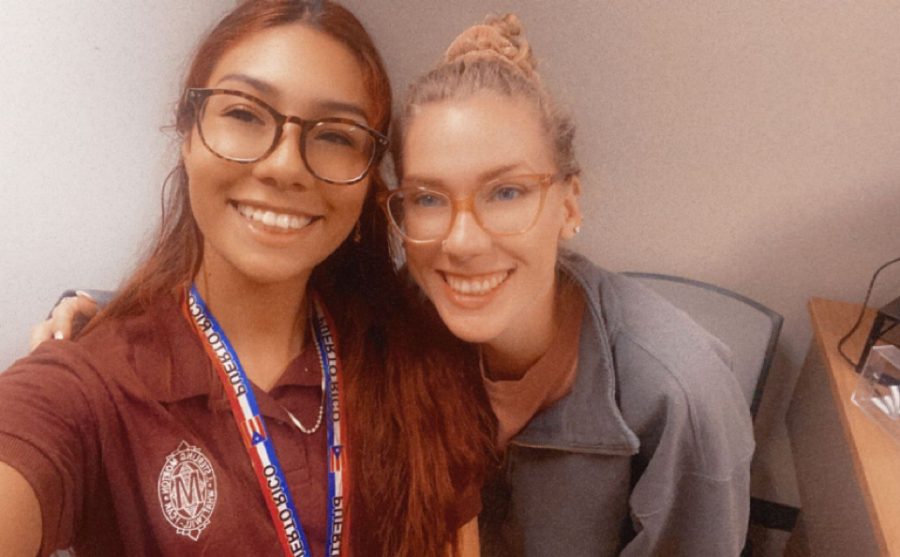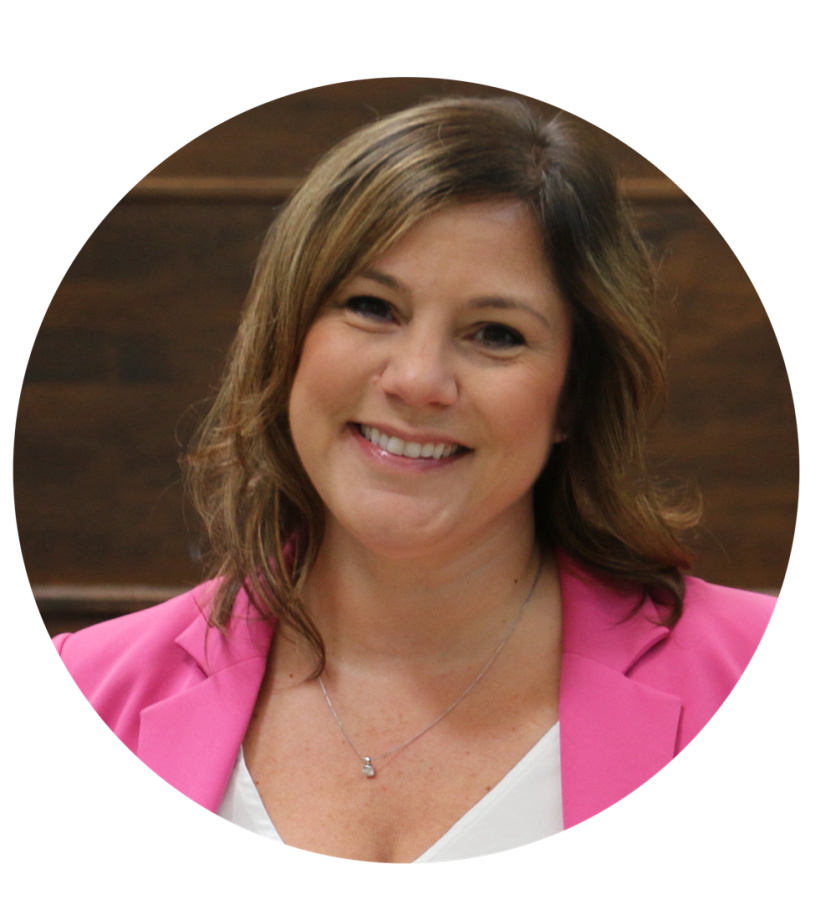Women In Leadership
February 23, 2023
Although many have the ambition, skills, and desire to be leaders, it is a struggle for many women to obtain leaderships. Despite these struggles, many of Morton’s administrators, teachers, and deans are women. I was interested in finding out more about some of their struggles and triumphs. Presented thusly are two interviews with some of Morton’s brightest, strongest, and most inspiring women, abridged and edited, for your reading pleasure.
Hannah Henry
“What made you go into the field of education?”
My reason for being in education has changed throughout the years. When I was ten years old, I was homeschooled and had never been in a classroom. I had never had a teacher. I don’t know what I, as a 10-year-old, was thinking, but I was like, “I want to be a teacher,” and then once I got to high school, I had to go to a public high school. I enjoyed my time but I had rough Junior and Senior years; My Junior year, my mom got sick with cancer, and my Senior year, my mom ended up passing away. When I had to pick my major for college, the idea of being in education stuck with me because I would have not graduated high school because of those two years without my teachers supporting me. I wanted to be able to do that for someone else. So when I got into college, I started working with high schoolers. That’s when I learned that I love high schoolers and my one job! All I want to do is work with high schoolers and make sure that they know that they are cared for and that they are loved. That is why I am in education.
“What was your path to becoming a dean?”
Right after college, I went to four years of university. I got my degree in math education and I got my first job right away. I started working for another high school down the road. I had worked there for six years as a math teacher, and around year four and I was like, “I have to do more,” and I went back to school for a couple of years and got my administration license. This past year, I told myself that I was ready to leave the classroom and I was ready to focus on the needs of students and not my content. I loved math, but I was ready to work with kids being kids. That is what pushed me to go the administrator route and why I am a dean.
“How do you Describe your leadership style?”
I take it as leading a team. I lead a team here at Morton and with them, I have really taken steps of figuring out what each person is an expert in and letting them take charge of those rules. I learned so much later on that I am not going to be able to do everything. That’s what I wanted to do at first. I think week one of being here I was like, “nope this is not going to work.” My leadership style is figuring out who is on my team, what they excel at, and asking them to run those areas because they could do that way better than I can.
“What is the biggest challenge of getting into female leadership?”
I think the biggest challenge is proving yourself; Proving that I deserve to be here. Even looking in the office, I am the one female dean and all the other deans are men, so coming in I had to prove that I am not just going to be placed to the side and that I am as hands-on as they are. As much as they walk in and own the room, I have to walk in that room and own it more. A big part of that is one, as the only woman in that team but two, as a woman you’re seen as being more weaker and delicate, and in my role, I can’t be weak and I can’t be delicate. I just have to own my space.
“Why do you think there aren’t many women in leadership?”
I think it’s for a couple of different reasons. One, it’s harder, you must prove yourself. I think the other reason goes back from earlier generations, as women are expected to be caretakers at home, so being women in leadership takes more time and effort. At the same time, we have these expectations that we have to get married and have children, which takes a ton of time. It’s really difficult to do both and a lot of times women choose family over career. That’s not a bad thing, but women are forced to make that decision.
“What advice would you give to women looking to advance their careers?”
If you want to advance, have a path. I know that I love being a dean, but it is not where I want to end my career. I have goals, but I also think becoming a dean was one of those goals along the way. Mapping out your goals while recognizing the successes you’ve made along the way is important. There’s a way to make anything happen, and if you want to make something happen, you can.
Kristy Cavanaugh
“What made you go into the field of education?”
I originally was planning to be an anthropologist or sociologist, so I started taking some classes. I decided that I would be interested in teaching social science. My mom was a teacher, and that’s how I made myself shift during my sophomore year of college from what I originally thought, political science and anthropology, to where I am: education.
“What was your path to becoming principal?”
I started as a teacher for nine years. I taught at the Morton alternative school in Cicero. That is where my first teaching job was right out of high school. I taught history and then I came to Morton West as a dean of students for two years in 2009, after I had gotten my type 75. I had to get a teaching certification first, then I did a master’s program where I did a type 75. It was an educational leadership program. I finished that degree in 2004, but I held on to it more for a while until I felt ready to move from the classroom to not working with kids every day directly. I didn’t feel like I was in a big rush to do that until 2009. Then I moved to the area of operation, where I was the assistant principal of the system of operations, which is a lot of behind-the-scenes work. For everything that happens in a school behind the scenes, you can give the credit to the people in the operations department. I enjoyed the master scheduling role, but that job is even more limiting in interaction with kids (or anything) on a wider scale. Then the principal job opened up. I felt like it was the next level for me to challenge myself to move from behind the scenes to something where I would have more interactions with more people. Now it is my third year at Morton West as a principal.
“What inspired you to become a leader?”
I feel like you’re always going to be a leader at different points in your life. so in the classrooms, you work with students that have to impact things on your environmental scale or where you are at on that point but then as I to the educational leadership classes I found that there were a lot of ways you can impact a lot of things, show students, family and people in the community that you want to be part of making positive change and impacts so I think for me that was what I thought that moving into a leadership role would be.
“Do you think your leadership style is different from a male in leadership?”
I am Morton West’s first female principal, and I’ve seen many more women in leadership roles than I have seen in a long time. Sitting at the table, there always wasn’t a lot of women. I think the typical communication style of women is different than that of men. By that, I don’t mean the ability to lead is different, but rather the way in which you lead and manage relationships. As a woman, some of these things just come naturally to me.


